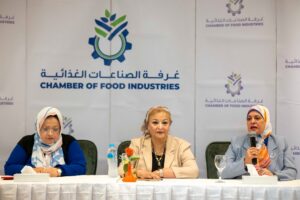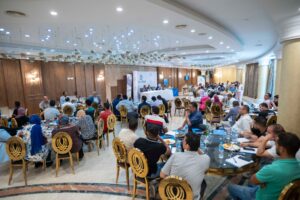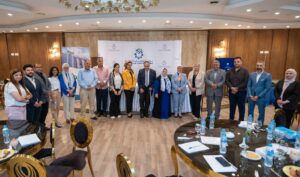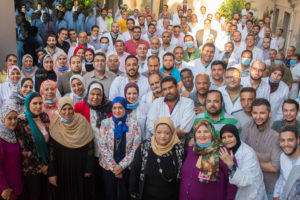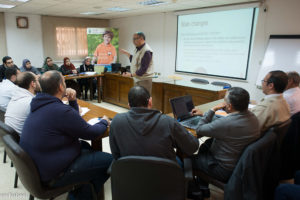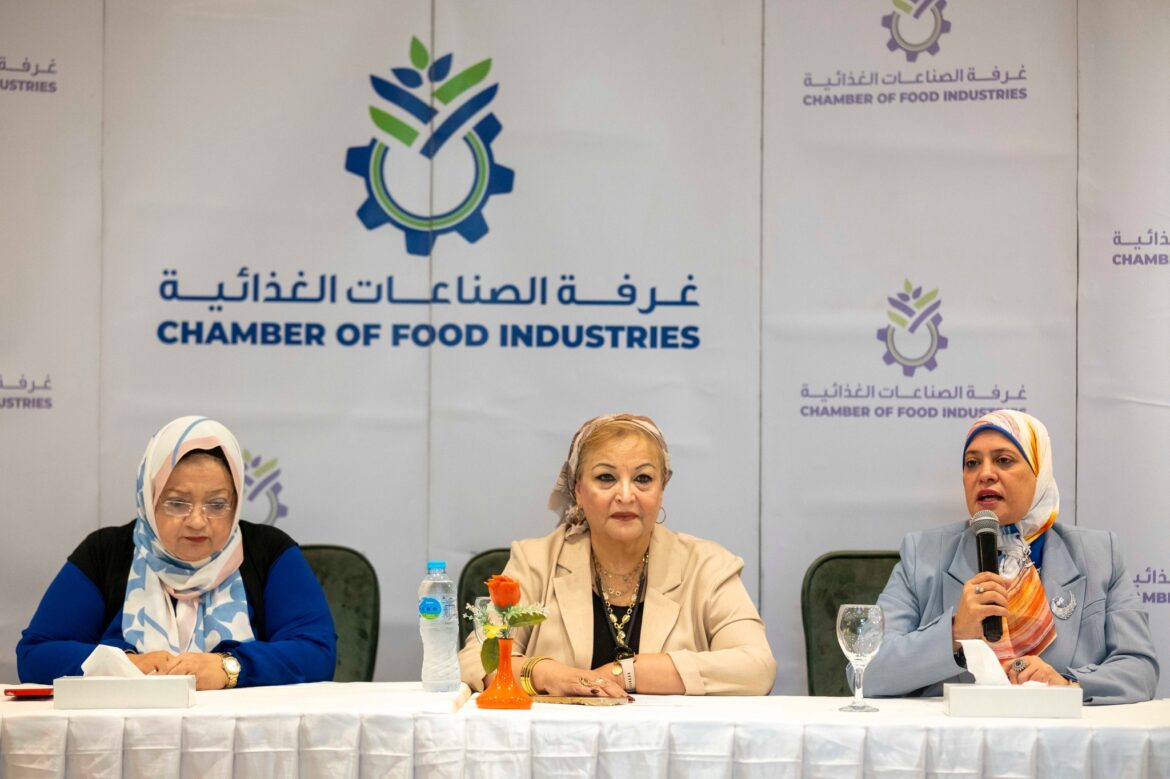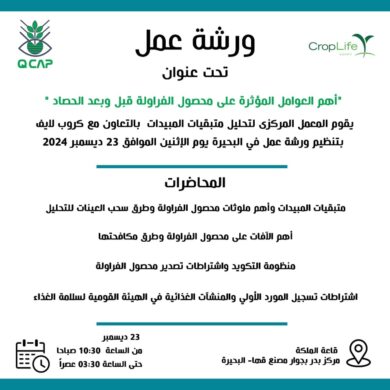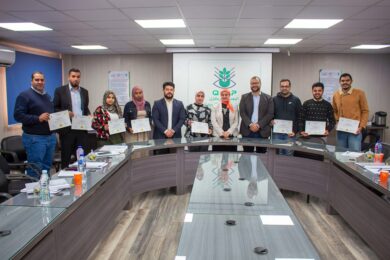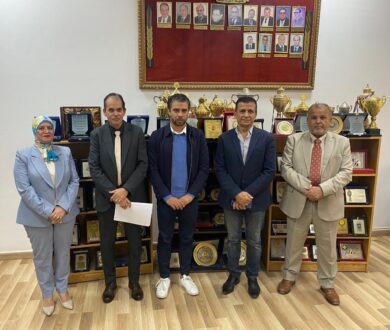In the framework of the directives of His Excellency the Minister of Agriculture and Land Reclamation, Mr. Alaa El-Din Farouk, and the Head of the Agricultural Research Center, Prof. Dr. Adel Abdel Azim, to support and assist the food industries sector, and within the framework of the cooperation protocol signed between the Chamber of Food Industries and the Central Laboratory for the Analysis of Pesticide Residues and Heavy Elements in Food, the Chamber, in cooperation with the laboratory, organized a workshop on “The Impact of Chemical Pollutants on Food Manufacturing” with the aim of qualifying and raising efficiency and exchanging experiences with producers and exporters in the field of food industries to comply with technical regulations and specifications for food safety locally and internationally, which contributes to the presence of products that conform to specifications locally, increase exports and open new markets in the food industries sector. More than 85 participants (engineers and quality and production managers) representing food manufacturing companies from the Chamber’s members participated in attending the workshop.
The workshop was opened by Dr. Maysa Hamza, Executive Director of the Chamber, Prof. Dr. Hind Abdullah – Laboratory Manager In her speech, Hamza welcomed, on behalf of the Chairman of the Chamber’s Board of Directors, Dr. Hind Abdullah, Laboratory Manager, the laboratory experts, and the attendees from the representatives of the Chamber’s member companies. She pointed out that the laboratory workshop comes within the framework of the activities of the protocol signed between the laboratory and the chamber to serve members in all areas of food manufacturing and discuss the problems faced by some producers or exporters and find appropriate solutions for them. She also pointed out that the chamber seeks to support members from all technical aspects through free and subsidized training programs and participation in the technical legislation and regulations related to the food industries sector, which increases its responsibilities towards members. For her part, Prof. Hind Abdullah – Laboratory Manager confirmed that the workshop aims primarily to support workers in this important sector by spreading awareness and technical support and clarifying many important matters that affect production and export in this important sector, the most important of which is the laboratory’s participation with its expertise in providing analytical services to examine contaminants in food and providing free technical consultations and organizing guidance and training workshops and some training programs with the chamber for the benefit of members for free or subsidized. Abdel-Latif said that the workshop included a series of important lectures given by the laboratory experts, where Dr. Taher Qadah, Head of the Marketing Department at the laboratory, spoke about the role of the laboratory and its importance in the field of food safety and the various services it provides to workers in the food industries sector, from analytical, training, or technical consultation services, according to the protocol signed between the Chamber and Q-CAP. Then, Prof. Mona Khorshid, Undersecretary and Technical Director of the laboratory, explained the impact of heavy elements on foods produced for the local market or for export, the sources of pollution in them, the technical regulations binding them, the technical specifications for the most important food product markets, and the most important findings of the laboratory in terms of the latest analysis methods using the latest devices in all food samples, as well as examining the migrating elements in the types of containers in which food is packed. The second lecture was in the field of mycotoxins, which was given by Prof. Ahmed Mamdouh, Head of the Mycotoxins, Additives and Food Quality Department, during which he defined mycotoxins and the reasons for contamination of some of the most important foods with them through infection with various fungi, the most important types of mycotoxins and their effect on the consumer and the extent of his knowledge. He also pointed out that legislative bodies around the world set strong and binding controls on mycotoxin contaminants on foods due to their extreme danger to humans directly and to food by increasing the percentage of waste. He then addressed the limits in the various specifications for the local market or international markets and the effect of this on the circulation of goods locally or exporting them to global markets. He concluded the lecture with the importance of the role of the laboratory in examining mycotoxins in foods using the latest analysis methods and the latest devices. Dr. Alaa El-Din Fathy, Vice President of the Mycotoxins, Additives and Food Quality Department at the laboratory, also gave a lecture on food additives and quality and the determinants of their use in various food industries and the role of the laboratory in examining them. Abdullah confirmed that the participants’ interest in the topics discussed in the workshop was evident through the high rate of participation and through the questions and inquiries that the company representatives in attendance asked and were answered by the laboratory experts. At the end of the workshop, Abdullah confirmed that the laboratory and the chamber, in light of the close cooperation between them, will organize several other workshops in different specializations and stressed that the laboratory is ready to receive all chamber members to visit the laboratories and learn closely about the different analysis methods in the laboratory. The workshop was managed by Ms. Reham Ghazi, General Manager of the Training and Development Department and the Chamber’s work team from the Technical Office and Members Affairs, and Dr. Taher Qadah, Head of the Marketing Department at the laboratory.
